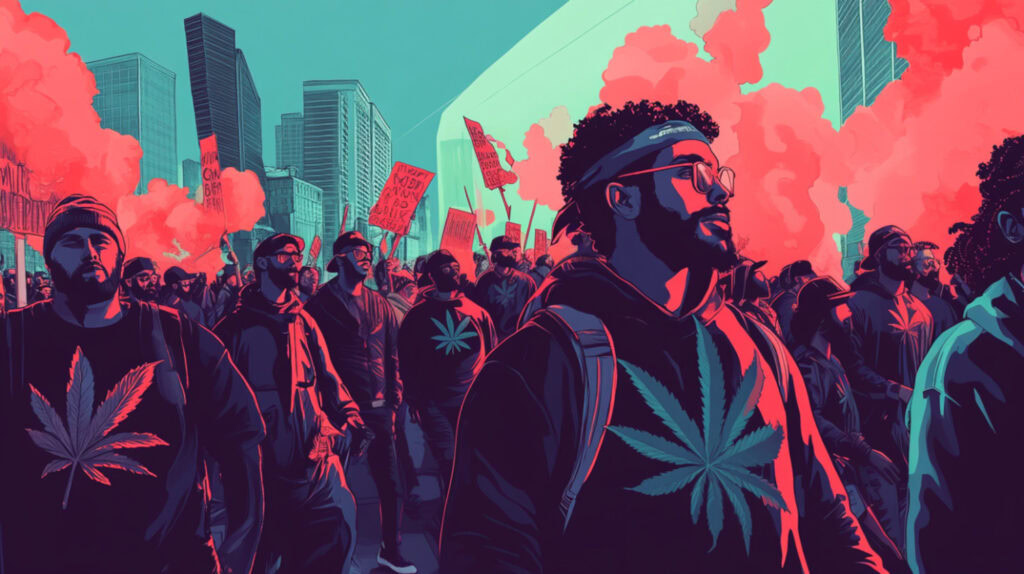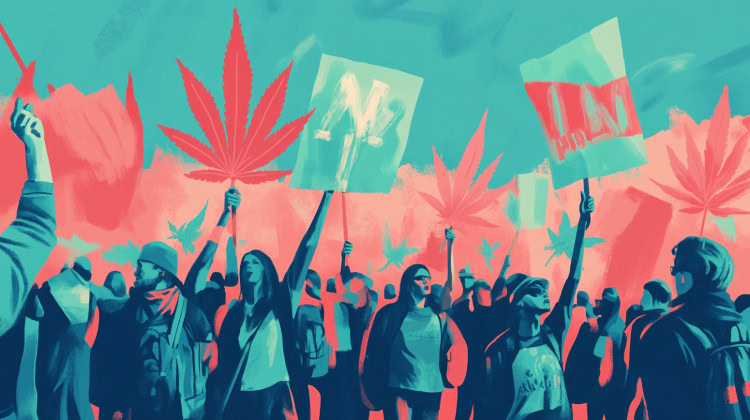In This Article
- What Challenges Do Medical Cannabis Patients Face?
- Inconsistent Legalization
- Discrimination
- Lack of Insurance Coverage
- Gun Ownership
- Stigma
- Lack of Access
- What Rights Do Medical Patients Have?
- How Can Cannabis Patients Get Legal Help?
- Top Organizations Advocating for Medical Cannabis Patients
- NORML
- Marijuana Policy Project
- Americans for Safe Access
- ACLU
- How To Support Medical Cannabis Patient Advocacy Groups
- How Can I Change the Cannabis Laws in My State?
Key Takeaways
- Patients sometimes face challenges accessing medical cannabis.
- Organizations including NORML, ASA, MPP, and the ACLU help protect the rights of cannabis patients.
- Becoming a member and participating in these groups’ activities can help spur cannabis policy reform.
Even in states that have legalized medical cannabis, patients sometimes face challenges accessing their medicine of choice. Fortunately, several organizations are working to help protect medical cannabis patients’ rights.
What Challenges Do Medical Cannabis Patients Face?
Cannabis patients face several challenges, including a patchwork of legalization, discrimination, and problems accessing cannabis therapies. These issues often cause patients undue stress and prevent many from gaining the potential benefits of medical cannabis therapies.
Inconsistent Legalization
While more than three dozen states have legalized cannabis for medicinal purposes, several have maintained the total prohibition of the plant. Cannabis also remains a Schedule I substance under federal law. This patchwork of legalization denies many patients the potential benefits of cannabis. Inconsistent legalization also means each state has its own set of cannabis regulations, which can be confusing when patients travel to other states.
Discrimination
Unfortunately, patients may face discrimination in several areas, such as employment and housing. While some states have passed legislation to protect patient rights, others have left patients open to discrimination in employment, housing, child custody cases, organ transplants, and college eligibility.
Lack of Insurance Coverage
Because of the continued illegality of cannabis at the federal level, health insurance companies and workers’ compensation programs generally do not cover the costs of medical cannabis products and consultations.
Change is in the air, however. In 2024, three cities in New Jersey became the first municipalities to offer insurance coverage for medical cannabis for their employees.
Gun Ownership
Under federal law, people who use cannabis are prohibited from possessing firearms, despite the protections of the Second Amendment to the U.S. Constitution.
Stigma
Even with legalization, many patients are still subjected to the stigma associated with cannabis and the people who use it. This stigma may cause some patients to forego the medicinal use of cannabis despite the potential benefits.
Lack of Access
While medical cannabis is legal in 39 states, patients, particularly in rural areas, may face challenges accessing cannabis products. Additionally, some states put restrictions on some forms of medical cannabis, denying patients access to products that may better suit their needs.
What Rights Do Medical Patients Have?

Patients who use prescription medications are often protected from discrimination by the Americans with Disabilities Act (ADA). However, because cannabis is still illegal under federal law, courts have found that ADA protections do not apply to medical cannabis patients.
The rights of medical cannabis patients under state law can vary from one jurisdiction to the next. Some states, particularly those that have legalized medical cannabis more recently, have specific legal provisions to protect the rights of medical cannabis patients. These rights can include employment protections, child custody rights, housing protections, education rights, and more. In 17 states, laws or court decisions protect the employment rights of cannabis patients.
How Can Cannabis Patients Get Legal Help?

Attorneys who specialize in medical patient rights practice in most, if not all, states that have legalized cannabis. The National Organization for the Reform of Marijuana Laws (NORML) Legal Committee is a group of lawyers committed to the goals of the cannabis policy reform advocacy group. These experienced defense attorneys regularly represent patients and other individuals charged with cannabis-related offenses, and they may provide pro bono assistance in significant or unusual cases that may establish favorable legal precedent or influence public policy.
Top Organizations Advocating for Medical Cannabis Patients
With all of the differences in cannabis regulations across the country, it can sometimes be a challenge to find trusted sources of cannabis information. Because of this, several organizations have stepped up to assist cannabis patients in knowing their rights.
NORML
The National Organization for the Reform of Marijuana Laws (NORML) has been working for the rights of cannabis patients and consumers since the group’s founding in 1970. During the 1970s, NORML led the movement to decriminalize minor cannabis-related offenses in 11 states. Since then, NORML has been on the leading edge of the struggle to end the prohibition of cannabis, including supporting legislation and ballot measures to legalize the plant for medical and recreational purposes.
Marijuana Policy Project
The Marijuana Policy Project (MPP) is also dedicated to reforming the nation’s outdated cannabis laws. This nonprofit group has been an integral force behind the passage of 15 medical cannabis laws and played a leading role in the legalization campaigns in 14 of the 24 states that have legalized cannabis for adults. MPP also works for fair cannabis policies that promote inclusion, equity, and justice in legislation and the regulated cannabis industry. The group also maintains an online clearinghouse of medical cannabis resources, including information on patient rights.
Americans for Safe Access
Americans for Safe Access (ASA) is the largest national organization of patients, medical professionals, researchers, providers, and others promoting safe and legal access to cannabis for medicinal use and scientific research. ASA's website provides information about medical cannabis laws by state, a travel guide for medical cannabis patients, and other resources. Resources are also available for medical professionals, regulators, and educators.
ACLU
The American Civil Liberties Union (ACLU) has worked to protect the rights of all Americans for more than 100 years. The group is a leader in the effort to reform cannabis laws and the impacts of the nation’s criminal justice system, including mass incarceration. The ACLU has also fought to implement and protect medical cannabis and decriminalization legislation in jurisdictions around the country, protecting the rights of cannabis patients and keeping individuals who pose no danger to public safety out of the criminal justice system.
How To Support Medical Cannabis Patient Advocacy Groups

All of the groups noted above are nonprofit organizations that rely on donations from supporters and the efforts of volunteers to conduct their important work. Most also have state or local chapters that provide opportunities for community building, patient advocacy, lobbying policymakers, and other essential activities.
These organizations offer membership options to help engage with their supporters. NuggMD patients can join ASA for free.
How Can I Change the Cannabis Laws in My State?
Some states allow citizens to participate in the legislative process through ballot initiatives. Activists in many states have used these policies to legalize cannabis for medicinal and recreational purposes, although most states that allow initiatives have already done so.
In states without an initiative process, legalizing medical cannabis is in the hands of state lawmakers, many of whom are reluctant to take on the issue because of the lingering stigma against cannabis.
Joining a cannabis policy reform group and participating in letter-writing campaigns, demonstrations, and other activities can help apply pressure and speed the legalization process. Policymakers are typically eager to receive feedback from voters, who are always free to contact their legislators through various channels, including mail, email, telephone, social media, and others.
The information in this article and any included images or charts are for educational purposes only. This information is neither a substitute for, nor does it replace, professional legal advice or medical advice, diagnosis, or treatment. If you have any concerns or questions about laws, regulations, or your health, you should always consult with an attorney, physician or other licensed professional.




